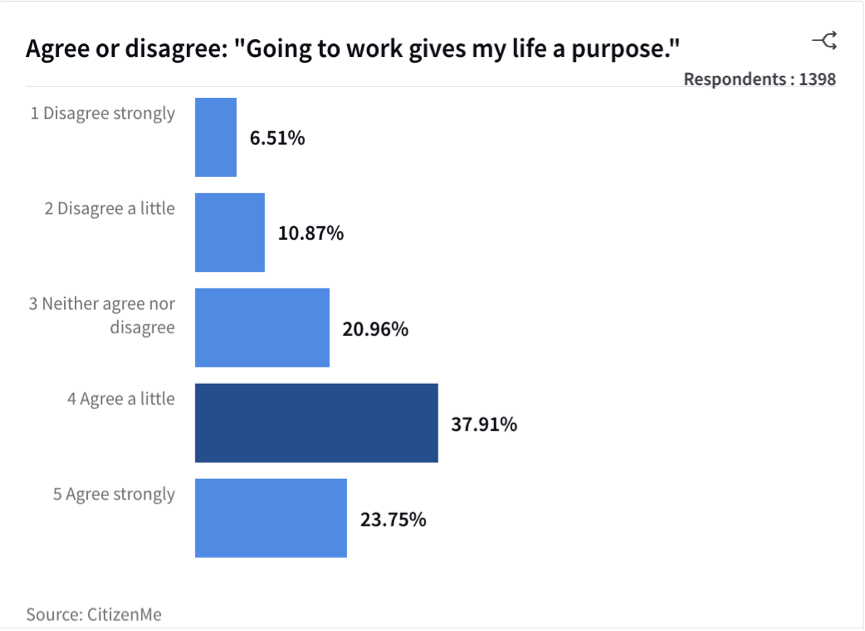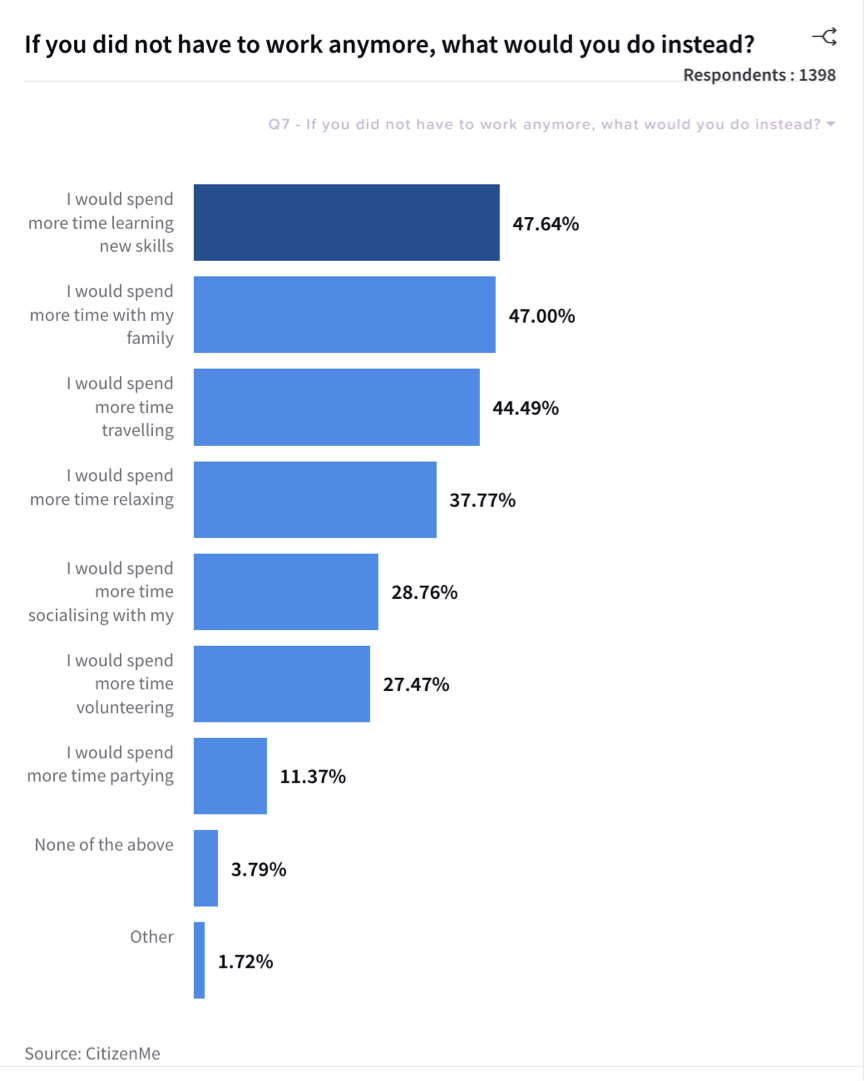
The Future of Work
The Future of Work https://www.citizenme.com/wp-content/uploads/2019/05/rsz_1rsz_image1-1.png 1276 844 Henry Wellington Henry Wellington https://secure.gravatar.com/avatar/4c6dbcf72a573f9a831b0126e8eff3d0?s=96&d=mm&r=gThe world as we know it was built on the idea that you work for a living. Your place in society is generally determined by the work you or your family members accomplish. But this system and the impact it has on humanity will fundamentally change due to one factor in particular – automation. With the arrival and spread of Artificial Intelligence (AI) it is no longer science fiction to say that robots may replace humans at work in the near future.
If this change is inevitable, then how can we best prepare ourselves for it? At CitizenMe, we wanted to explore this topic further to understand existing attitudes and how Citizens of the digital world feel about a workless future.
Work as a life purpose
We published a multinational survey to discover how Citizens felt about the prospect of a workless future and their plans for it. Our Exchange was based on the idea that the participants’ basic needs, such as food, shelter and security, were guaranteed by their government.

Audience: Global, Employed, in Training or Education, Male/Female, 16-65+ (n=1398)
Of the respondents who are employed, in training or in education, 62% agree that work gives their life a purpose whereas only 17% of them disagree. These results suggest that a workless future may lead to a loss of identity for those who see work as a defining purpose in their lives. While this may seem negative, there might be positive upsides to the automation of work. If these individuals rely on the purpose that work brings them, why not dedicate their newfound time to other fulfilling endeavors?
Life after work

Audience: Global, Employed, in Training or Education, Male/Female, 16-65+ (n=1398)
We asked participants what path(s) they would like to pursue post-work. Out of the various ideas proposed, the most popular response (just over 47%) shows that respondents want to spend their time learning new skills, be it music, art, public speaking or sports. These results contradict the assumption that, without work, society would slack off and degenerate; only 11% of answers stipulated that the time would be spent partying. Instead, most people would spend more time with their families (47%) or expanding their horizons by traveling (45%). This doesn’t mean that they wouldn’t spend their time relaxing (38%) or socialising (29%), but overall these changes seem positive.
Using our platform to understand attitudes
Our platform allows people all over the world to express their ideas and attitudes on different topics, anonymously. In this study, we received responses from the UK, Brazil, India, the USA, Nigeria, the Philippines and Italy, to name a few. Given that the next generation of automation is happening, it’s interesting to see where humanity might be steering and where we want it to take us.
This new phase of automation is visual – self service machines at supermarkets, coffee shops and fast food shops being just a few examples. But there are more advanced innovations coming in – robots flipping burgers and even preparing Michelin star style meals! Furthermore, new innovations in software – coupled with machine learning and data – are capable of completing work that people assumed only humans could do, such as banking and journalism.
There are strong arguments that predict humanity’s future will be a workless one. Whilst this isn’t an ironclad guarantee, discussing its possibility will help us be better prepared in case it did come to pass. Through our exchange’s results, we now have an idea of how our Citizens want this future to look like. And we believe that their vision of the future – one where we have the freedom to allocate our time rather than ration it – is a pleasant one.
If you’d like to join us as a Citizen or client, have any questions or would like more information, don’t hesitate to contact us at hello@citizenme.com.
- Posted In:
- Business blog
- Citizen blog
- Uncategorized






Leave a Reply